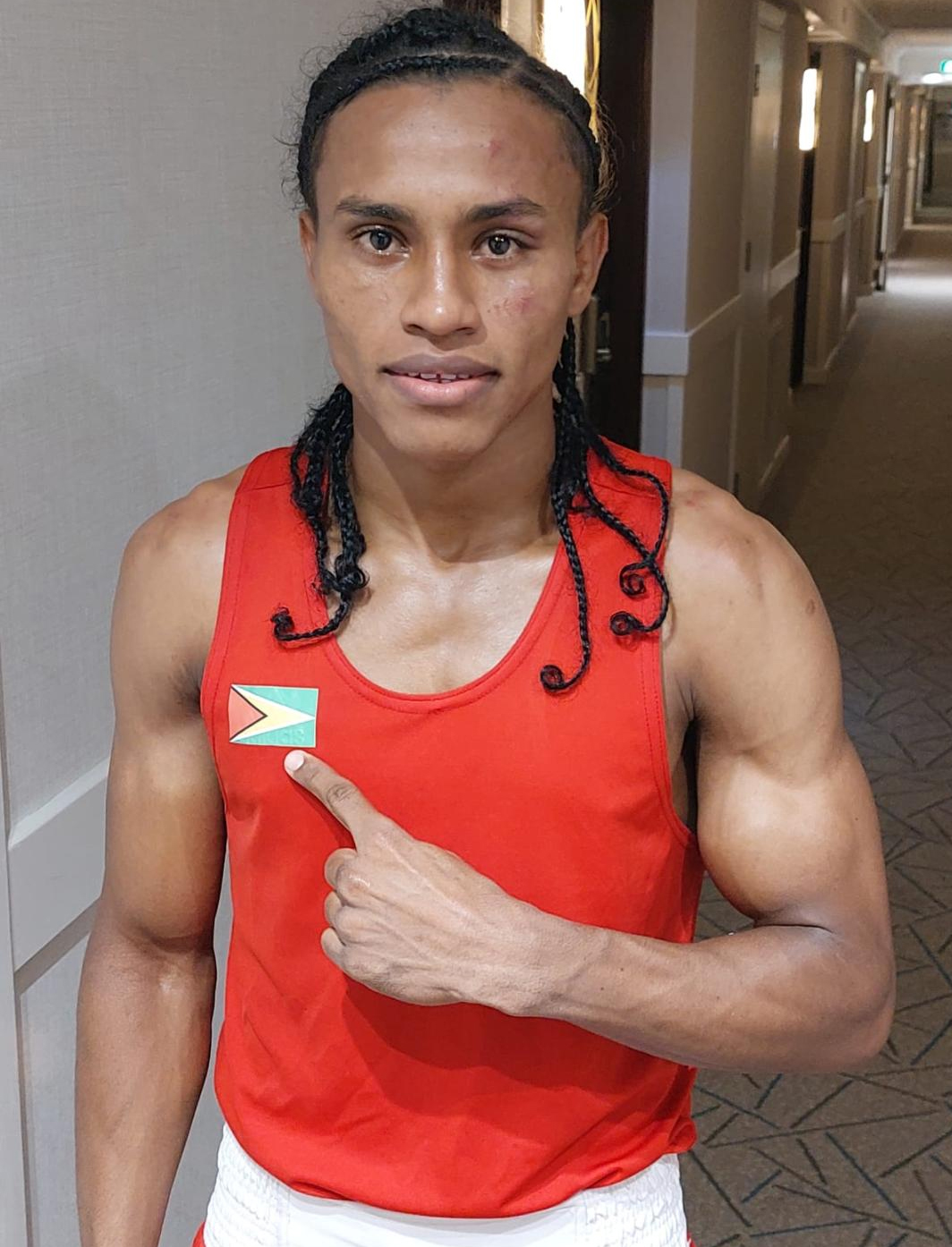Perhaps the time is now for prized pugilist, Keevin Allicock, to consider getting his feet wet in the lightweight division if he has aspirations of competing at the next Olympic Games.
After failing to make weight and losing his South American Games 57kg semi final bout on the scales in Paraguay last Sunday, it may be in the best interest of the Tokyo 2020 Olympian to move up a division.
In my humble opinion, it would be advantageous for him to start campaigning at lightweight (60kg) well in advance prior to Paris 2024.
At 23, Allicock is still growing and it will take a Herculean effort to stay in the featherweight ranks in the foreseeable future since as humans age, weight becomes harder to lose, bone density increases, and muscle mass is easier retained.
Last Sunday in Asunción, Allicock disappointingly lost his bout versus Ecuador’s Jean Pachito without throwing a punch because of excessive weight.
Allicock, who won a bronze medal by virtue of reaching the semis, weighed in at 57.7kg and had about 30 minutes to sweat off the excess .7kg.
According to Technical Director of the Guyana Boxing Association (GBA), Terrence Poole, Allicock did his best to sweat off the weight but weighed in at 57.1kg, losing the fight on the scales via walkover (WO).
With his body fat percentage in the single digits and dehydrated, Allicock still could not make weight.
It may have been no fault of his as this can just be attributed to Mother Nature. His physique though already shredded to the gills, perhaps has simply outgrown being a featherweight.
Missing weight occurs to professional boxers, even world champions (Shakur Stevenson) who are exposed to the best facilities, trainers, nutritionists, physiotherapists etc.
At the Games, Team Guyana did not even travel with a nutritionist or physiotherapist. Again no fault of Allicock’s.
What he can control however, is ascending to lightweight which may be his best bet to put him on a path to achieving Guyana’s second Olympic medal.
Fighting at a natural weight will enable him to train and eat healthily without dropping a huge amount of weight in a few hours or minutes. I am of the firm belief that fighters should compete in divisions close to weight they walk around at, Floyd Mayweather was quite successful with that approach. This allows them to walk into a fight healthier, and more importantly with a lower risk of illness and/or injury.
Kidney failure is among the symptoms associated with excessive weight cuts, fighters can also suffer seizures.
It was reported that Allicock suffered a ‘health scare’ in Paraguay.
It is well known that athletes in combat sports are in the practice of cutting weight to gain a size advantage over the competition, but is it worth it in the long run? Fighters are starting to figure it is not and considering their long-term health so hopefully Allicock does the same.
The step up in weight would also put less strain on his mind and body ahead of entering the ring since he would just have to focus on his opponent instead of labouring to play Russian roulette on the scales.





